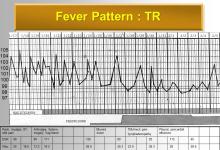Statins Improve Survival in Ankylosing Spondylitis Save

Systemic inflammation (from underling inflammatory polyarthritis) clearly accelerates atherosclerosis with a resultant increase risk of cardiovascular disease.
A recent population-based cohort study published by Dr. Exarchou et al showed that patients with ankylosing spondylitis (AS) are at 60% increased risk of premature mortality with CV events being more common in AS than in the general population (1). At the same time there is little known about how CV risk factor modification modalities may affect this outcome. In multiple RA studies it has been shown that statin initiation can decrease CV mortality risk by up to 20%.
In a recent study, conducted by a researchers from UK , the goal was to investigate similar relationships between statin initiation and the risk of all-cause mortality in patients with AS in a general population context.
This population-based cohort study compared adult AS patients who carried a diagnosis of AS for at least a year between 2000 and 2014 to the general population.
1430 AS patients who started a statin were randomly matched 1:1 and compared to statin non-initiators. It was observed that patients in the statin group had higher prevalence of CV disease, more CV risk factors and higher use of CV medications (confounding by indication).
After initial characteristic groups were balanced in statistical analysis, mortality rates in statin initiation and statin non-initiation groups were 16.5 and 23.8 per 1000 PYs, respectively, and the HR for mortality associated with statin initiation was 0.63 (95% CI 0.46 to 0.85). The corresponding absolute mortality rate difference was 7.3 deaths per 1000 PYs (95% CI 2.1 to 12.5).
Statin initiation was associated with a 37% reduction in all-cause mortality. This association was independent of age, sex, BMI socioeconomic status, relevant comorbidities, cardiovascular medication use, total cholesterol levels and healthcare utilization.
Interestingly, the magnitude of this association was much higher in AS as compared to similar RA studies. Further studies would be required to define the role of statin use in AS care, which could potentially lead to incorporation of statin therapy into guidelines for the management of cardiovascular risk in AS.










If you are a health practitioner, you may Login/Register to comment.
Due to the nature of these comment forums, only health practitioners are allowed to comment at this time.